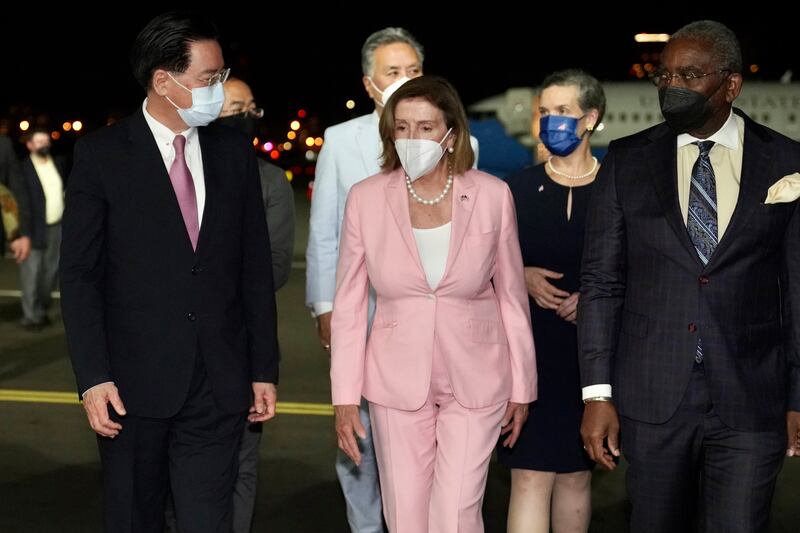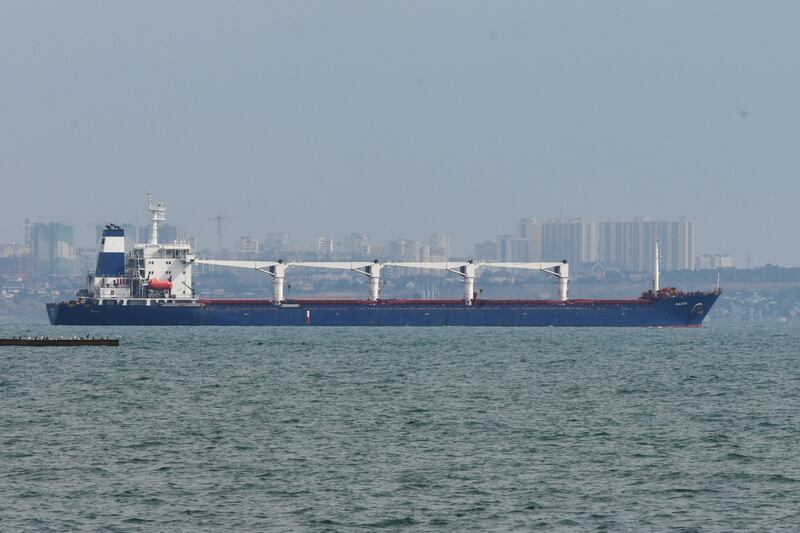Around 10 a.m. local time Aug. 1, the carrier ship Razoni departed the port of Odessa in south Ukraine, bearing more than 26,000 tons of corn bound to feed hungry people in the Middle East. The shipment comes as a relief as many countries face dire food shortages due to extreme weather, rising prices and conflicts such as the war in Ukraine. Since invading Ukraine in February, Russia has disrupted exports of various resources and turned them into political weapons.
It’s hardly a new strategy. Since antiquity, military leaders have weaponized resources during times of war. Consider one of the earliest battles recorded in history: the siege of Megiddo in the late 15th century B.C. The Egyptian army surrounded the Canaanite city — which lay on a major trading route — cutting crucial supply lines. Facing starvation, the citizens of Megiddo surrendered.
But the tactic has spilled from battlefields into politics. Politicians who control valuable resources other countries depend on can leverage these for their goals. Russia is doing this with natural gas, too. The country’s vast reserves of gas feed much of Europe, especially during the cold winter months. Over the past few months, however, Russia has slowly closed the taps. This week, Gazprom, Russia’s national energy company, reduced flow in Nord Stream 1, the primary artery of Russian gas to Europe. The pipeline is now operating at one-fifth of its capacity.
Gazprom blames the disruption on a turbine that was shipped to Canada for repairs but whose return was delayed. The delay, Gazprom argues, was due to sanctions related to the war in Ukraine.
European leaders think it’s a paltry excuse. “Russia is using energy as a weapon,” said Ursula von der Leyen, president of the European Commission.
With winter on the horizon and fear of a complete cutoff of supply, the European Union announced a plan to curb gas consumption and fill reserves. But shortages will make meeting these goals difficult, and state rationing may be needed. The shortages also can affect the economy, raising prices for consumers and industries that rely on gas.
A silver lining would be if the shortages lead to European countries diversifying their energy sources, and perhaps shifting toward greener alternatives. So far, however, it’s had the opposite effect: Germany reactivated disused coal power plants, a setback to its goals to lower the country’s carbon footprint.
What does Russia gain?
Invading Ukraine did not improve Russia’s popularity with the West. Many countries in Europe and North America imposed sanctions on Russian goods and exports. They also have sent billions of dollars in military aid to Ukraine, turning the invasion into a protracted war that is costing President Vladimir Putin more rubles than he expected.
Controlling resources allows Russia to fight back. While shunned from a large chunk of the global economy and international diplomatic circles, Russia can still cause an energy crisis in Europe, create food shortages and influence major industries. These situations can then be used as leverage in negotiations. And at home, they help Putin maintain his popularity and strengthen his grip on power.
That said, here is this morning’s roundup:
U.S. airstrike kills one of 9/11’s masterminds
The hunt is over: Ayman al-Zawahiri, a former Egyptian physician who joined Osama bin Laden’s al-Qaeda and helped orchestrate the Sept. 11, 2001, terrorist attacks, was killed by an airstrike on Saturday. He was 71. “No matter how long it takes, no matter where you hide, if you are a threat to our people, the United States will find you and take you out,” said President Joe Biden during a televised press statement. Al-Zawahiri assumed leadership of al-Qaeda after U.S. forces killed bin Laden in 2001. He left a bloody trail of terrorism spanning his home in Egypt as well as Kenya, Pakistan, Tanzania and the U.S. Joby Warrick, at The Washington Post, wrote an incisive obituary about the man.

Nancy Pelosi visits Taiwan amid warnings from China
Taiwan or bust: Speaker of the House Nancy Pelosi arrived in Taiwan Monday. The Chinese government said it would consider her visit “a gross interference in China’s internal affairs.” Taiwan’s status as a self-governing democracy has been a flashpoint in America’s relationship with China. The trip is also causing friction with Biden’s administration, which has backed Pelosi while simultaneously asserting her visit is unrelated to U.S. foreign policy toward China. Pelosi will meet with President Tsai Ing-wen Tuesday, reported NPR. She is the highest-ranking U.S. official to visit the island in decades.
Arizona holds primaries
To the polls: Arizona — along with Kansas, Missouri, Michigan and Washington — will hold primaries Monday to determine which candidates will advance to the midterm elections in November. In Arizona, they serve as a litmus test for former President Donald Trump’s lingering influence in the GOP. Trump-backed Kari Lake is running against Karrin Taylor Robson, endorsed by Trump’s former vice president, Mike Pence, for governor. Lake supports Trump’s debunked claim that the 2020 election was stolen from him, while Robson opposes this. Similar contests are at play in the state senate. Hunter Schwarz, one of our political correspondents, takes a look at what’s at stake in Arizona.
California declares state of emergency due to monkeypox
State of emergency: Gov. Gavin Newsom declared a state of emergency in California due to the spread of monkeypox, reports The Associated Press. It follows similar declarations a few days earlier from San Francisco and the state of New York. A smallpox-like virus, monkeypox causes fever, aches, swelling and rashes, among other symptoms. It spreads primarily “through close, intimate contact,” according to the CDC. More than 5,800 cases have been confirmed in the U.S. The Deseret News answers questions about vaccines and how the virus affects children.
Death toll in Kentucky floods rises to 37
A grim tally: At least 37 people have died due to flash flooding in Kentucky, while hundreds more are missing. The toll may rise, even as more rain is expected. Gov. Andy Beshear said he believes rescuers will find more bodies in coming weeks; he also said refrigerated trucks have been turned into makeshift morgues, according to WKYT, a local station. My colleague Lois Collins takes a look at the grim news and explains why flooding is the most common type of natural disaster.

